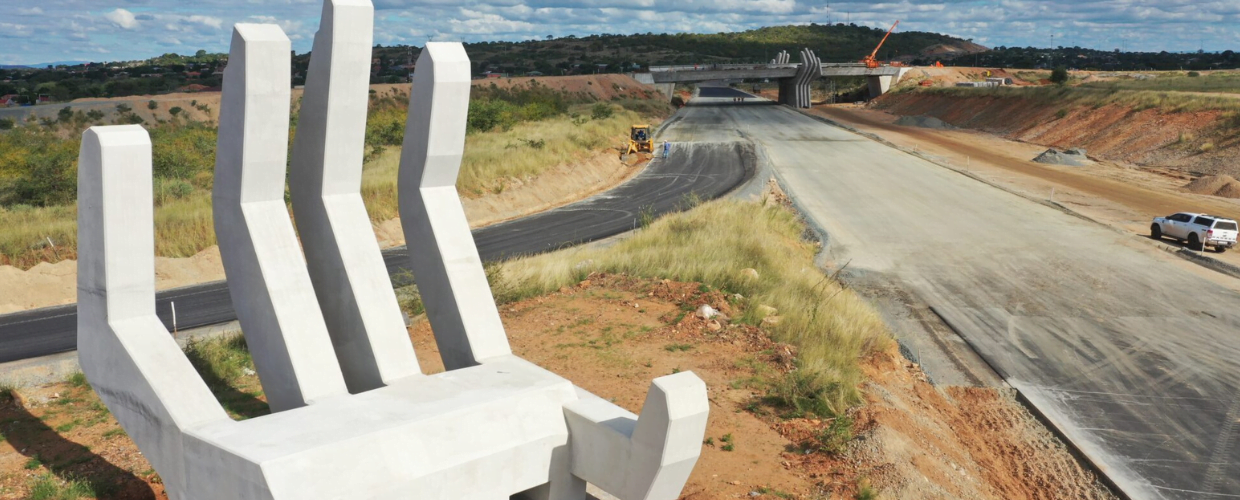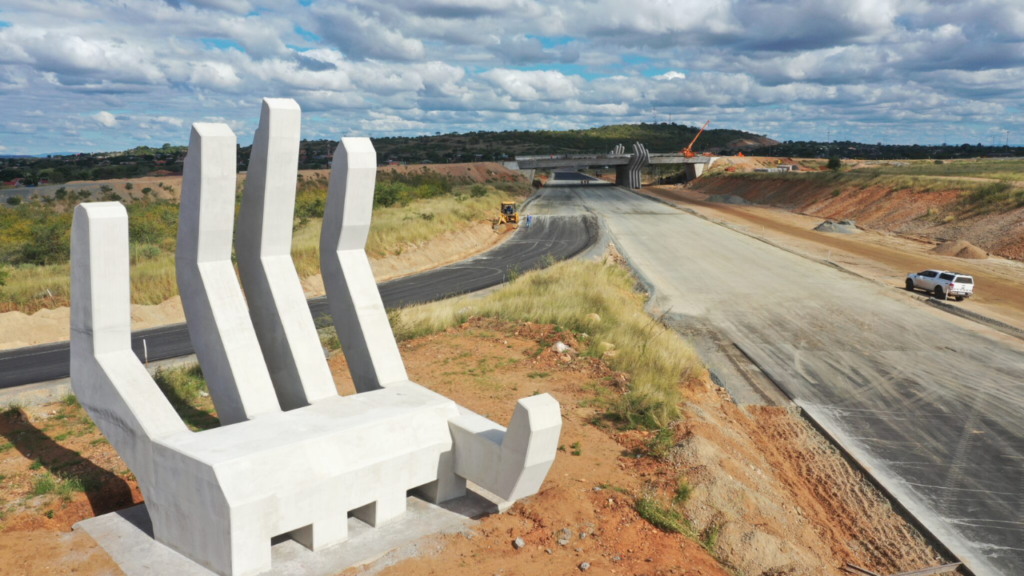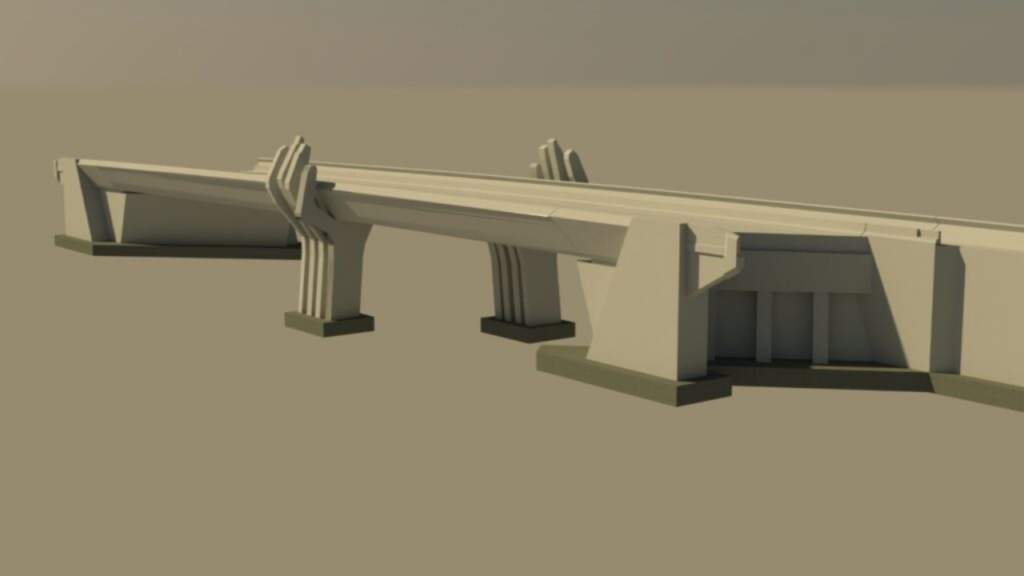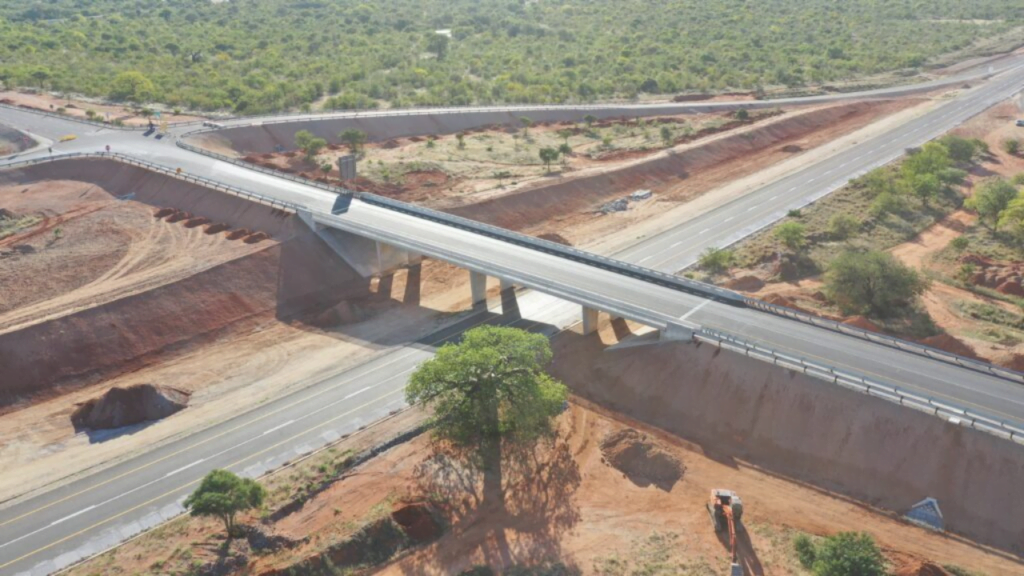Introduction:
Established in 1968, KBK Engineers (Pty) Ltd has been a cornerstone of engineering excellence in South Africa for over five decades. As a Level 1 B-BBEE certified firm, KBK has earned a reputation for delivering unparalleled consulting services across various sectors, including Roads, Structures, Bulk-Water, Infrastructure Development, and Project Management. Guided by visionary leaders and forward-thinking professionals, KBK is on a remarkable journey of digital transformation. This journey not only enhances operational efficiency but also embraces sustainability as a core ethos, setting new standards for environmentally conscious engineering solutions.
Customer Challenges:
In the recent Musina Ring Road Project aimed at diverting traffic around the town of Musina, KBK Engineers skilfully navigated a host of complex challenges, underlining their commitment to both development and environmental preservation. The project, which introduced the landmark Musina Bridge, required KBK to carefully relocate native Baobab and Marula trees and work in close partnership with environmental experts to meet rigorous sustainability criteria. Additionally, the construction path intersected an existing waste dump, prompting the necessary relocation and reconstruction of the facility. The project also involved constructing a road over a historic 150-year-old mine.
This intricate project not only demonstrated KBK’s adept problem-solving skills but also earned them prestigious recognition at the 2023 CESA Awards. For their outstanding work on the N1 Musina Ring Road for the South African National Roads Agency Limited (Sanral), KBK Engineers proudly received the award in the category of Projects Valued Between R250-million and R1-billion, showcasing their exemplary performance in managing significant infrastructure projects.
This was just one instance among the myriad sustainability challenges that KBK has encountered and triumphed over. Others have included:
- Deliberating over recyclable materials for water management infrastructure projects.
- Seamlessly integrating sustainable design principles to achieve Green Star Certification.
- Strategising to minimise their office’s carbon footprint.
- Optimising resources and time spent on-site visits to reduce waste and fuel consumption.
- Innovating water management techniques for mining projects.
These challenges represent just a glimpse into the daily sustainability endeavours undertaken by KBK Engineers, challenges they embrace as second nature.
Project Goals:
With sustainability as a guiding principle, KBK Engineers commitment to environmental responsibility is not just a lofty ideal but a tangible goal that KBK aimed to achieve. Drawing inspiration from past successes and lessons learned, KBK sought to replicate and enhance their sustainable engineering approach, as demonstrated in projects such as:
- Musina Ring Road Project:
The Musina Ring Road Bridge project served as a pivotal example of KBK’s dedication to sustainability. Here, the goal was not only to construct a functional route but also to do so in a manner that minimised environmental impact and maximised resource efficiency. KBK aimed to showcase how sustainability could be seamlessly integrated into every phase of the project lifecycle, from initial design to construction and beyond.
- Utilisation of Recycled Materials:
In various infrastructure projects, KBK Engineers championed the use of recycled materials as a means of reducing waste and promoting sustainability. By exploring alternatives to conventional construction materials and embracing recycled resources, KBK demonstrated their commitment to eco-conscious engineering practices. Through meticulous testing and evaluation, KBK ensured that these materials met the necessary standards fit for purpose and environmental compatibility.
- Integrating Sustainable Design for Green Certification:
KBK Engineers spearheaded initiatives to achieve certifications such as the planned Central Communication Building Green Star certification, which demanded a comprehensive approach to sustainable design. By leveraging advanced modelling tools and innovative strategies, KBK aimed to optimise energy efficiency, material usage, and ecological preservation in their projects. Through meticulous planning and collaboration, KBK laid the groundwork for achieving stringent sustainability standards.
- Reducing Carbon Footprint through Smart Office Location:
Recognising the importance of leading by example, KBK strategically located their office to minimise carbon emissions and promote sustainability. By centralising operations and reducing travel requirements, KBK demonstrated their commitment to reducing their environmental footprint. This proactive approach not only aligned with their sustainability goals but also set a precedent for responsible business practices within the engineering industry.
- Minimising Site Visits through Innovative Technology:
In their quest to enhance project efficiency and minimise environmental impact, KBK embraced innovative technologies such as 3D scanning to streamline site visits. By conducting detailed scans and virtual assessments, KBK reduced the need for physical site inspections, thus saving time, resources, and fuel. This approach not only improved project accuracy but also reduced disruption to the natural environment.
Design Solutions:
In addressing the sustainability challenges inherent in the Musina Ring Road Project, KBK Engineers demonstrated a pioneering spirit in their approach to design solutions. Drawing from their extensive experience and leveraging cutting-edge technologies, KBK implemented a series of innovative strategies aimed at minimising environmental impact while maximising efficiency.
Here’s how KBK tackled the design aspects of sustainability in other projects:
- Utilisation of Recycled and Environmentally Friendly Materials:
In line with their commitment to sustainability, KBK Engineers explored the use of recycled and environmentally friendly materials wherever feasible. Building upon their experience with projects like the infrastructure revamp for a petrochemical organisation, KBK conducted thorough assessments to identify suitable materials for the various pipeline beddings on water management projects. By incorporating recycled materials into these projects.
- Integration of Sustainable Design Principles for Green Certification:
With the ambition of achieving certifications such as Central Communications Building Green Star certification, KBK Engineers meticulously integrated sustainable design principles into the offices’ architectural, landscape and structural plans. Leveraging advanced modelling tools like Revit and Civil 3D, KBK created comprehensive 3D models that facilitated the visualisation and planning of sustainable features. From optimising the reuse of topsoil material to enhance the aesthetics of the landscape usage and enhancing energy efficiency, every aspect of this awaiting project’s design was meticulously crafted to meet stringent sustainability standards.
- Innovative Water Management Solutions:
Recognising the importance of sustainable water management, particularly in mining projects, KBK Engineers implemented innovative solutions to minimise water usage and promote conservation. Building upon their experience in addressing water management challenges, KBK incorporated features such as stormwater management systems and water recycling mechanisms into the bridge’s design. By optimising water usage and reducing wastage, KBK ensure that mining projects’ environmental impact on local water resources is minimal, thus contributing to long-term sustainability.
- Minimising Carbon Footprint through Efficient Design and Office Location:
KBK Engineers took proactive steps to minimise the project’s carbon footprint by optimising design elements and strategically locating their office. Building upon their experience in reducing carbon emissions through smart office location, KBK ensured that the bridge’s design prioritised energy efficiency and sustainability. By centralising operations and minimising travel requirements, KBK not only reduced their own environmental footprint but also set a precedent for responsible business practices within the engineering industry.
- Maximising Efficiency through Technology Integration:
Embracing technological advancements, KBK Engineers leveraged state-of-the-art tools and methodologies to enhance project efficiency and accuracy. Drawing from their expertise in utilising 3D scanning technology and Revit Modelling to minimise site visits.
Business Benefits:
In implementing sustainable design solutions for the Musina Ring Road Bridge project, KBK Engineers reaped a multitude of business benefits while further solidifying their commitment to environmental responsibility. Leveraging their innovative strategies, KBK not only minimised the project’s environmental impact but also maximised operational efficiency, resulting in tangible advantages for both their business and their clients.
Chris Krugell, Director at KBK Engineers, emphasises, “Our dedication to sustainability not only aligns with our values but also brings tangible benefits to our business and clients.” Through strategic partnerships with Baker Baynes, KBK seamlessly integrated advanced technologies like Revit and Civil 3D, enabling them to visualise and plan sustainable features with unparalleled precision.
Furthermore, KBK’s innovative water management solutions, including stormwater management systems and water recycling mechanisms, not only minimised environmental impact but also contributed to long-term sustainability in mining projects. This proactive approach not only showcased KBK’s engineering prowess but also positioned them as leaders in sustainable infrastructure development.
Moreover, by minimising their carbon footprint through efficient design and office location, KBK demonstrated their commitment to responsible business practices. Through centralised operations and reduced travel requirements, KBK not only reduced environmental impact but also set a precedent for sustainability within the engineering industry.
Through the integration of cutting-edge technologies and sustainable design principles, KBK maximised efficiency and accuracy in their project delivery processes. By leveraging tools like 3D scanning technology and Revit Modelling, KBK optimised design processes, reduced errors, and minimised resource wastage, ultimately enhancing project outcomes and client satisfaction.
Conclusion:
In conclusion, KBK Engineers’ commitment to sustainability sets them apart as pioneers in the field of engineering excellence. By integrating environmental considerations into every aspect of their projects, KBK demonstrates that sustainability is not just a goal but a guiding principle. Through visionary leadership, innovative solutions, and a dedication to environmental stewardship, KBK Engineers continues to redefine what it means to be an engineering firm in the 21st century.
As Chris Krugell aptly summarises, “Sustainability is not just a choice; it’s a strategic advantage that drives innovation and fosters long-term success.” Our journey towards sustainability is not just about building bridges—it’s about building a better future for generations to come.”







0 Comments